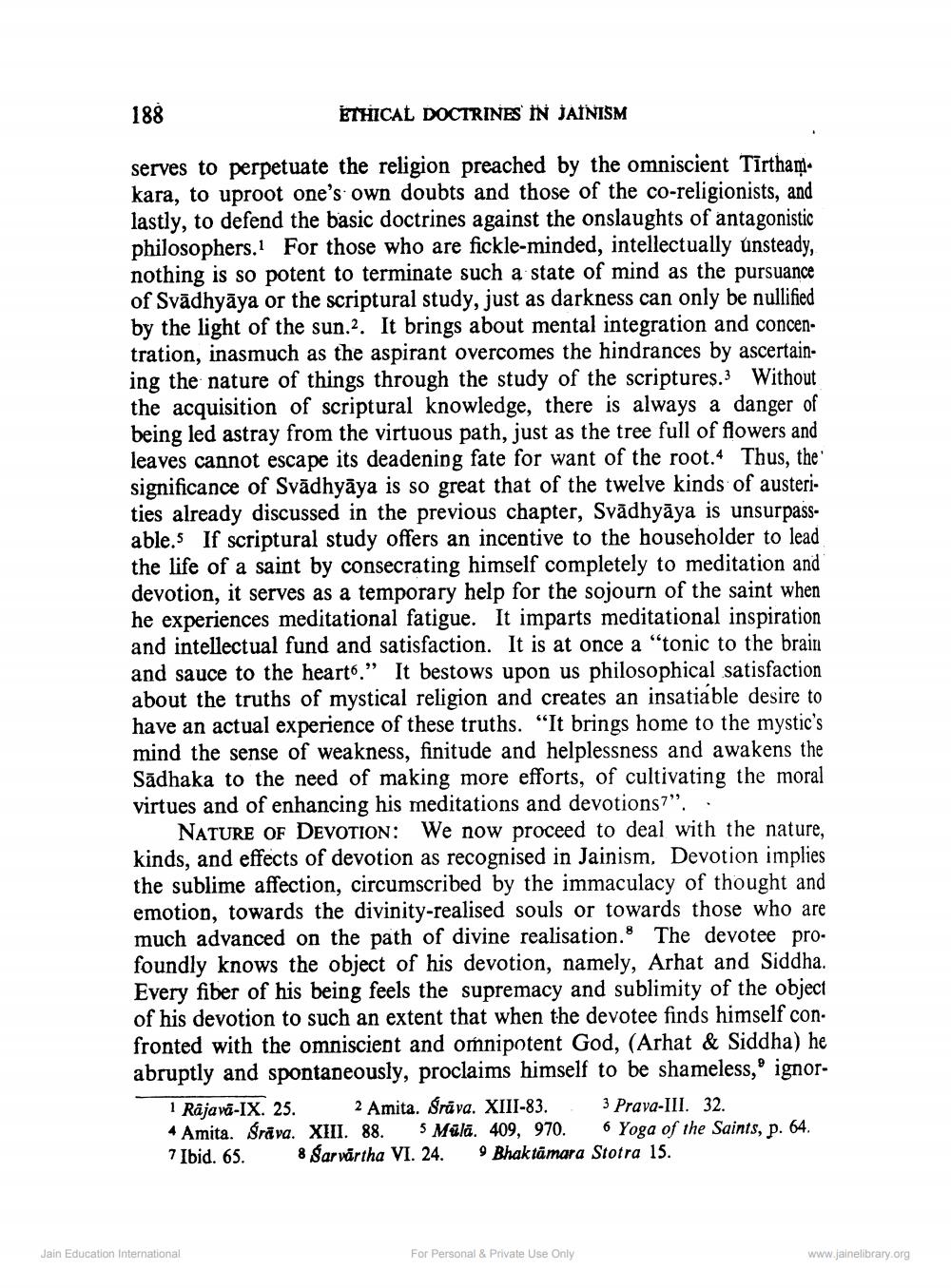________________
188
ETHICAL DOCTRINES IN JAINISM
serves to perpetuate the religion preached by the omniscient Tirtham kara, to uproot one's own doubts and those of the co-religionists, and lastly, to defend the basic doctrines against the onslaughts of antagonistic philosophers. For those who are fickle-minded, intellectually unsteady, nothing is so potent to terminate such a state of mind as the pursuance of Svādhyāya or the scriptural study, just as darkness can only be nullified by the light of the sun.2. It brings about mental integration and concentration, inasmuch as the aspirant overcomes the hindrances by ascertaining the nature of things through the study of the scriptures. Without the acquisition of scriptural knowledge, there is always a danger of being led astray from the virtuous path, just as the tree full of flowers and leaves cannot escape its deadening fate for want of the root. Thus, the significance of Svādhyāya is so great that of the twelve kinds of austerities already discussed in the previous chapter, Svādhyāya is unsurpassable. If scriptural study offers an incentive to the householder to lead the life of a saint by consecrating himself completely to meditation and devotion, it serves as a temporary help for the sojourn of the saint when he experiences meditational fatigue. It imparts meditational inspiration and intellectual fund and satisfaction. It is at once a "tonic to the brain and sauce to the heartó.” It bestows upon us philosophical satisfaction about the truths of mystical religion and creates an insatiable desire to have an actual experience of these truths. “It brings home to the mystic's mind the sense of weakness, finitude and helplessness and awakens the Sādhaka to the need of making more efforts, of cultivating the moral virtues and of enhancing his meditations and devotions7"..
NATURE OF DEVOTION: We now proceed to deal with the nature, kinds, and effects of devotion as recognised in Jainism, Devotion implies the sublime affection, circumscribed by the immaculacy of thought and emotion, towards the divinity-realised souls or towards those who are much advanced on the path of divine realisation. The devotee profoundly knows the object of his devotion, namely, Arhat and Siddha Every fiber of his being feels the supremacy and sublimity of the object of his devotion to such an extent that when the devotee finds himself confronted with the omniscient and omnipotent God, (Arhat & Siddha) he abruptly and spontaneously, proclaims himself to be shameless, ignor
1 Rajava-IX. 25. 2 Amita. Sráva. XIII-83. 3 Prava-III. 32. 4 Amita. Srava. XIII. 88. 5 Mülā. 409, 970. 6 Yoga of the Saints, p. 64. 7 Ibid. 65. 8 Sarvärtha VI. 24. 9 Bhaktamara Stotra 15.
Jain Education International
For Personal & Private Use Only
www.jainelibrary.org




